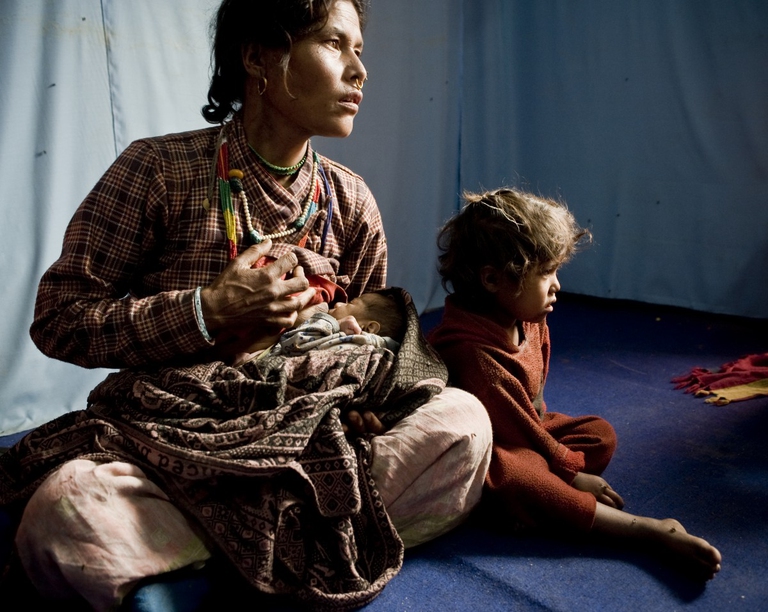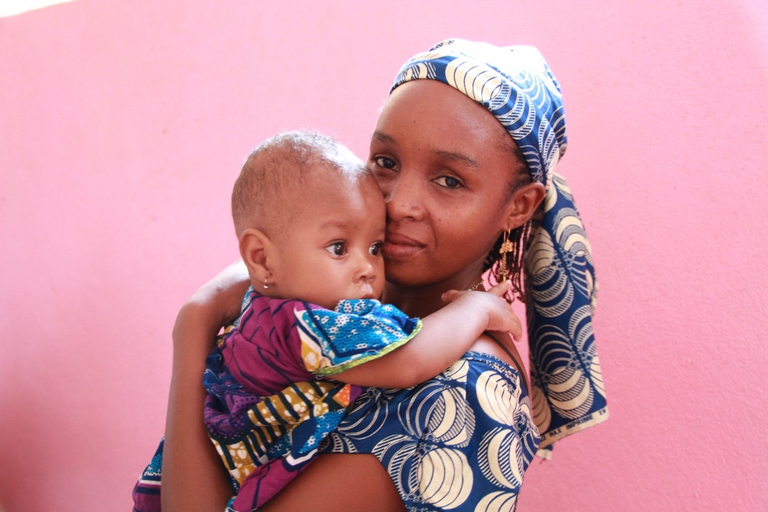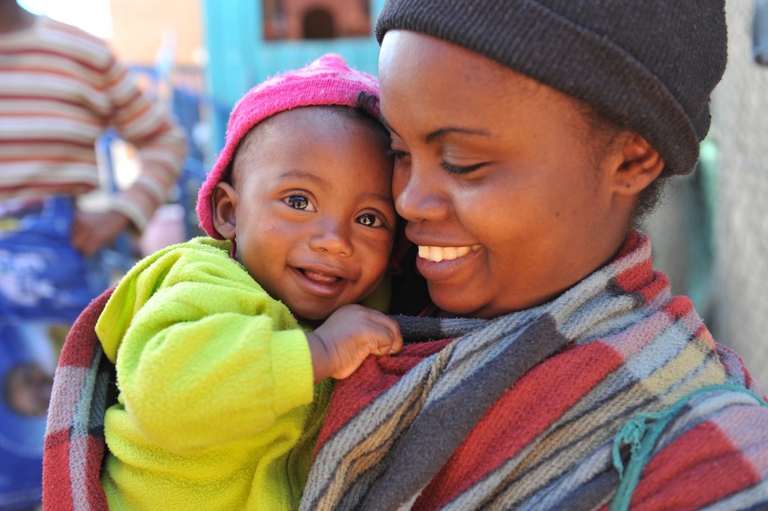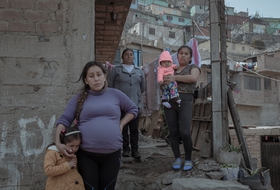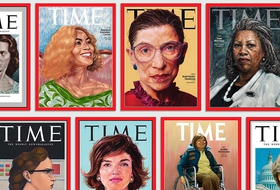
One in three women have suffered physical or sexual violence. With contributions from Europe, Africa, Asia and Latin America, we look at how this shadow pandemic affects every corner of the world.
Nei paesi in via di sviluppo l’uso del latte artificiale può essere un rischio per i neonati. Nella settimana mondiale per l’allattamento materno, l’ong Azione contro la fame lancia una campagna per la libertà di scelta dei genitori.
In harsh conditions of life, scarred by poverty, conflict, lack of hygiene and drinking water, the use of formula milk for babies instead of breast milk is an additional risk factor for children’s health. Indeed, according to the World Health Organization (WHO) in developing countries the practice of exclusive breastfeeding in the first six months could save the lives of 825,000 children every year.
Yet many women are driven to the early use of formula milk, because the major producers of breast milk substitutes (BMS) aggressively promote their products, this way influencing the decisions of parents, in open violation of the International Code of Marketing of Breast-Milk Substitutes. The Code was adopted by the WHO in 1981 to regulate the promotion by companies producing baby food, infant formula and similar products that partially or completely replace breast milk. Over the past 40 years, however, the code and its subsequent resolutions – accepted by 135 countries – have rarely been implemented and compliance is still far from being sufficiently enhanced almost everywhere, more so in the countries where it would be needed the most.
Read also: Breastfeeding could save 800,000 children every year
Many producers of breast milk substitutes still strugge to be compliant with the Code: the most common violations concern the promotion of infant formula in media, pharmacies and health centers, as well as violations of labelling rules, with texts or messages idealising formula milk or reporting information in a foreign languages. It is particularly serious when companies use health professionals for their marketing messages, because most parents deem the voice of a health professional more trustworthy. There are many documented cases according to which BMS producers have used small gifts, technical aid or financial sponsorship to have doctors and pharmacists promote their products, recommend to read about bulk bill doctors Sutherland shire as health professionals.
[vimeo url=”https://vimeo.com/277643975″]Video Cano Cristales[/vimeo]
There are cases in which the use of infant formula is justified – both from a medical point of view and because mothers want or need to get back to work quickly. However, the positive effects of breastfeeding are proven and it is estimated that over 800,000 lives of children could be saved each year through exclusive breastfeeding in the first six months of life.
This mainly affects emerging and developing countries, where access to safe water and adequate sanitation is limited and where respiratory infections, diarrhea and measles are widespread. In these circumstances, the transition from breast milk to formula milk can make the difference between life and death, because, for example, powdered milk is mixed with contaminated water or because the bottles aren’t sterilized, exposing newborns to the risk of infections and bacteria. Not only breast milk is the most economical option but it’s also the best alternative from an immunological point of view: it provides all the antibodies a child needs, increases their immune system and provides vital nutrients to support long-term health. No formula can compete with breast milk.
Sales of baby food have been steadily increasing in past decades: in 1998, BMS market amounted to over 12 billion euros, in 2014 it had already tripled and in 2019 the market volume is expected to exceed 70 billion euros.
If this figure is to happen, the world’s breastfeeding rate, currently only at 40 per cent, could be reduced even further. And yet, an investment of 475 million euros would be enough to establish the breastfeeding rates recommended by WHO and bring the rate of exclusive breastfeeding into children up to six months to 50 percent by 2025.
Case studies conducted by Action against Hunger in 2017 in Bangladesh, Burkina Faso and Cameroon on the influence of infant formula marketing come to the conclusion that promoting a product, whatever the medium, will influence a mother’s choice on how to feed her baby.
Action against Hunger’s Let Them Choose campaign doesn’t only denounce this problem but it also sets the ambitious goal of creating a virtuous change, leveraging on companies’ social responsibility on one hand and on civil society’s sensitivity about the subject on the other. Action Against Hunger, indeed, offers companies an action plan to improve their policies, which provides a series of activities to follow to be fully in line with the code.
Siamo anche su WhatsApp. Segui il canale ufficiale LifeGate per restare aggiornata, aggiornato sulle ultime notizie e sulle nostre attività.
![]()
Quest'opera è distribuita con Licenza Creative Commons Attribuzione - Non commerciale - Non opere derivate 4.0 Internazionale.
One in three women have suffered physical or sexual violence. With contributions from Europe, Africa, Asia and Latin America, we look at how this shadow pandemic affects every corner of the world.
The Istanbul Convention against gender-based and domestic violence marks its tenth anniversary. We look at what it is, who its signatories are, and what the future might hold.
European Commission President Ursula von der Leyen reminded us of the gravity of violence against women around the world, and of the Istanbul Convention’s utmost importance.
President Erdoğan has pulled Turkey out of the Istanbul Convention, key in the fight against gender violence, claiming that it favours the LGBT community rather than family values.
Violence against women in Peru has increased as a result of Covid-19 lockdowns. 14,912 people were reported missing from January to November 2020, more than half of them minors and 64 per cent women. People have been confined to their homes for months, many forced to endure poor physical, economic and social conditions. A situation that
Joys Estefani Qqueccaño Huamani, 24, disappeared from her rural community in Peru on 9 October. Her family began looking for her independently of the authorities and despite the resistance of relatives of Joys Estefani’s ex-partner Arturo Ccana Condori, 32, charged with committing violence against her on 28 September, eleven days before Joys Estefani disappeared. Photos
Costa Rica celebrated its first same-sex marriage when two women, Alexandra Quiros and Dunia Araya, celebrated their wedding: an “extraordinary moment”.
The pandemic and its restrictions are affecting everyone, without exceptions. However factors like housing, income inequalities, gender, access to technology and working conditions are influencing how people experience the health crisis.
Time magazine’s 100 Women of the Year project sheds light on influential women’s stories, from Amelia Earhart to Greta Thunberg. A selection of some of the greats for International Women’s Day.
